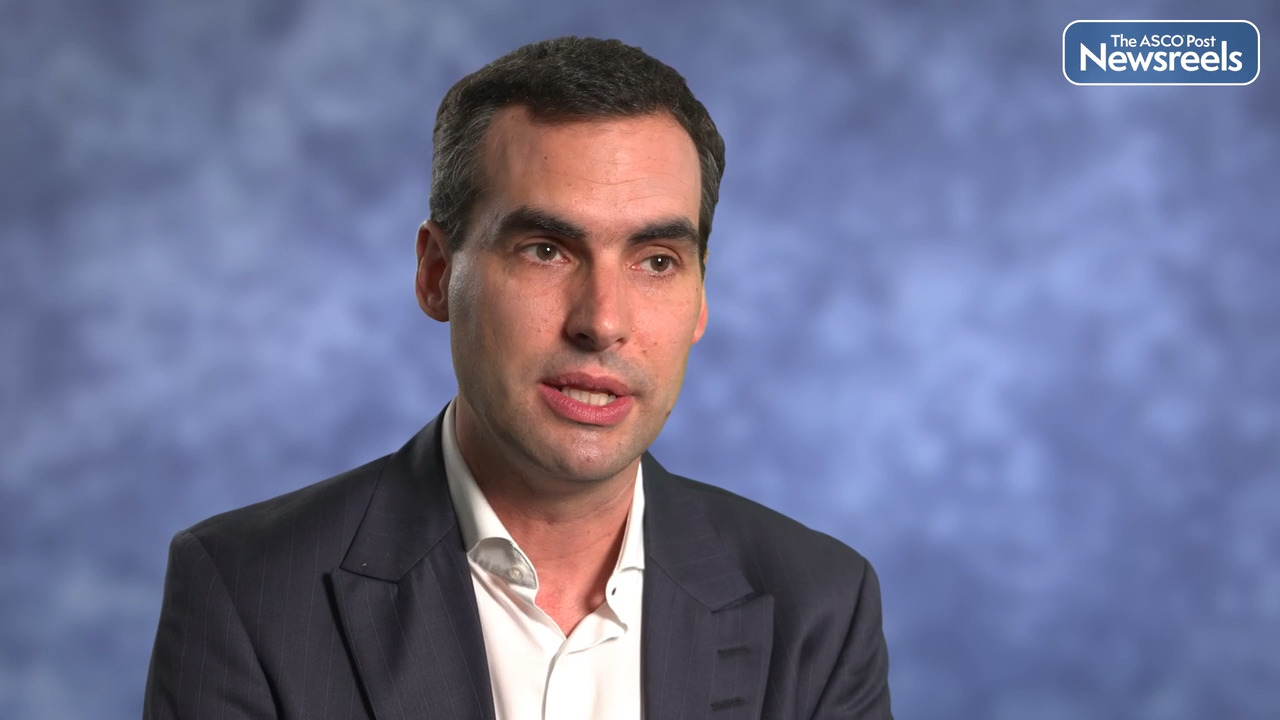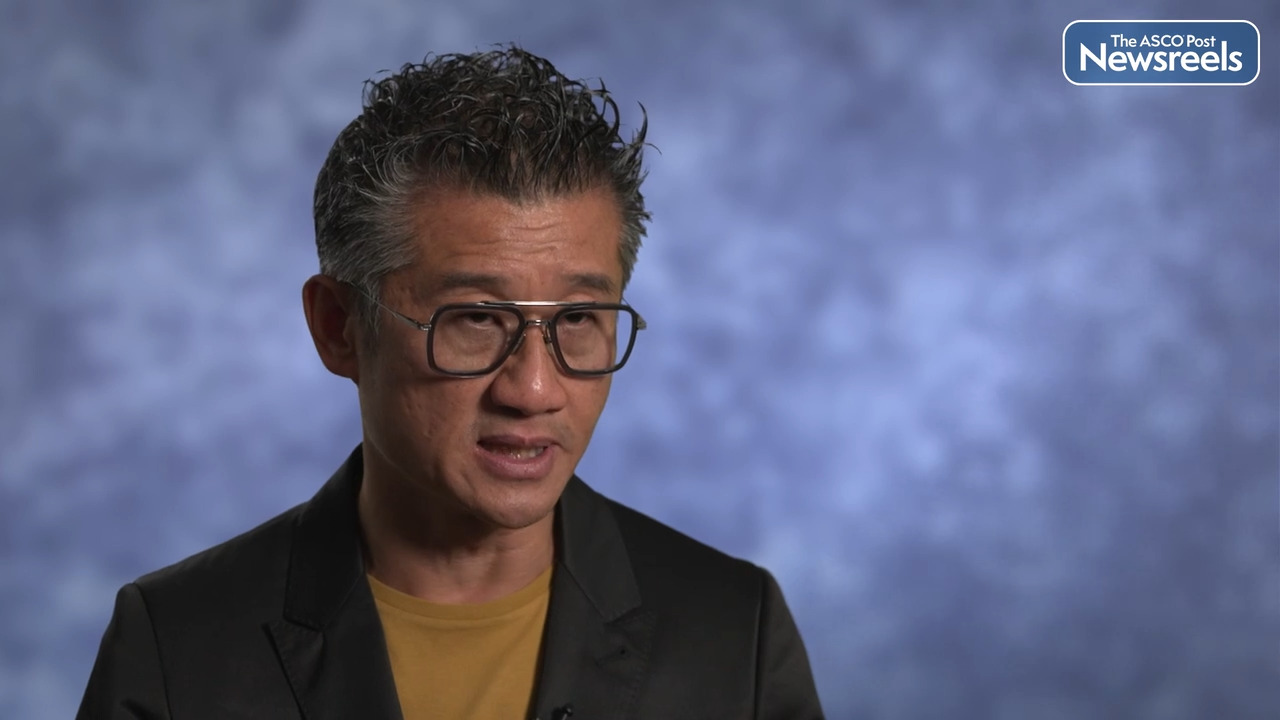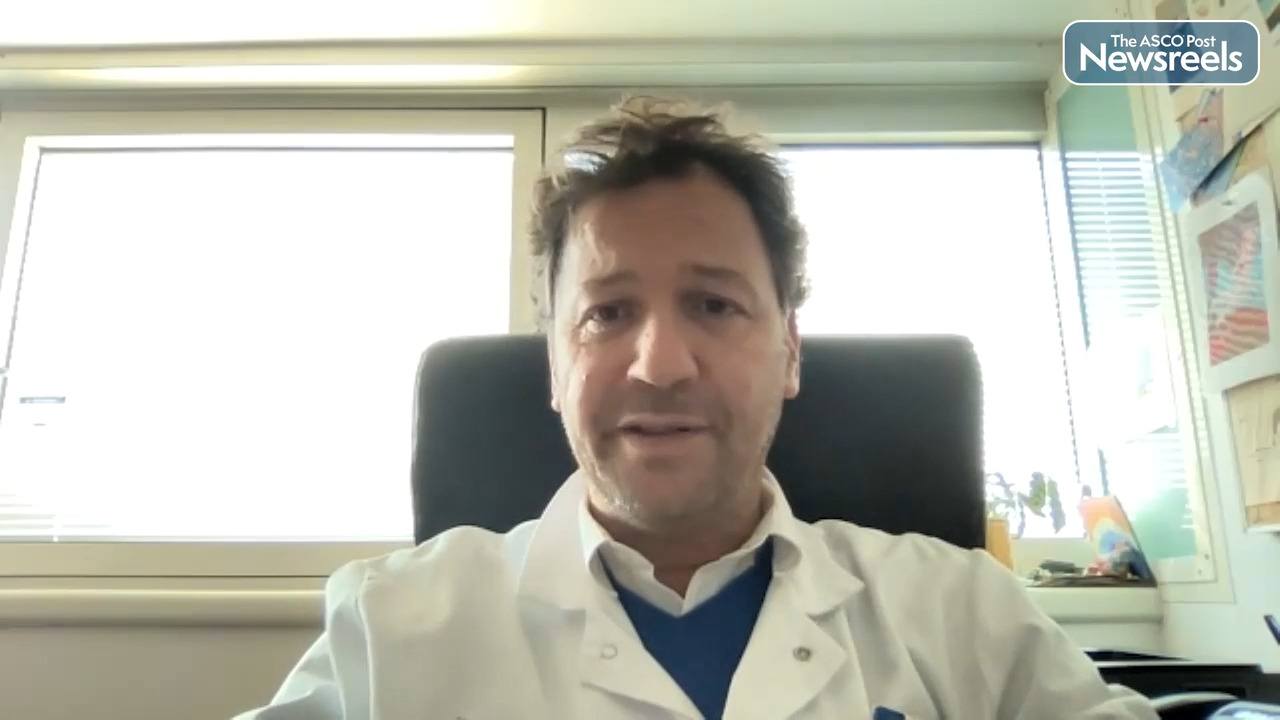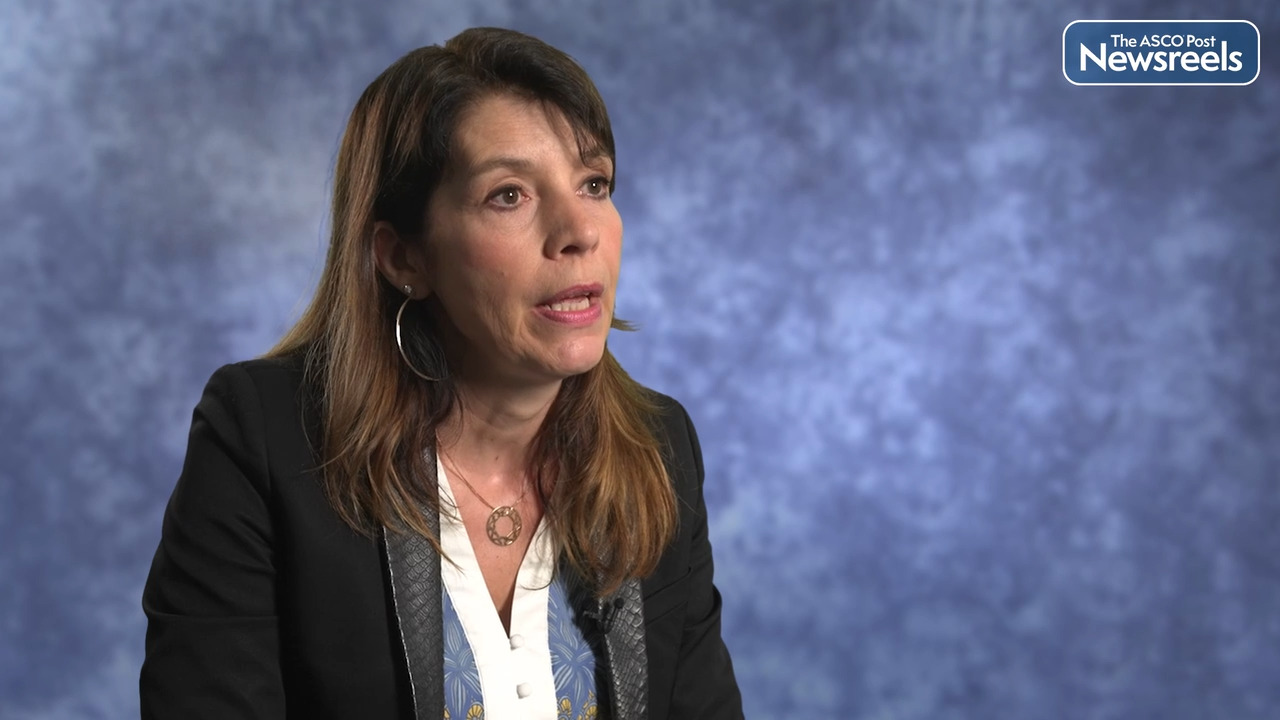Transcript
Disclaimer: This video transcript has not been proofread or edited and may contain errors.
In this confirmatory, multicenter trial, we investigated new adjuvant Cemiplimab in 79 patients with resectable stage II to IV cutaneous squamous cell carcinoma.
The impetus for this trial was a pilot study that we conducted among patients with stage III and IV disease at a single institution, MD Anderson, where we found an extraordinary pathologic complete response rate, 55% among 20 patients. The long term follow up from that study was presented at ASCO in 2022 and demonstrated three-year longterm survival. So the impetus for this trial was to confirm those results. We investigated 79 patients over 20 centers in the US, Australia, and Europe. We enrolled patients over about a year and a half timeframe during COVID.
What we found in this study was that 50.6% of patients, so 40 out of 79 patients, also had a complete pathologic response to new adjuvant therapy with four doses of Cemiplimab. Another 10 patients had a major pathologic response, so less than or equal to 10% residual viable tumor cells in the specimen, after neoadjuvant therapy. We found 20 patients that had a less complete pathologic response. And there were some patients who were not a valuable, some patients who refused surgery because of dramatic clinical responses. There were also some patients who progressed, although that was the minority.
This was a first part of the study, the initial portion. So just looking at the primary endpoint of pathologic, complete response, we do not have longterm follow up data yet, or quality of life outcomes data. These are maturing and look forward to presenting these, but the data so far presented demonstrate significant pathologic responses that we think will be durable. And because of this, we're excited about the longterm follow up.
This study was published in the New England Journal of Medicine, and we're excited that it offers an opportunity for patients, a new approach, a novel approach to treating this aggressive disease. In the future, we hope that patients may be selected for less aggressive treatments based on their response to neoadjuvant treatment. There may be patients who don't need radiation after surgery. There may be patients who don't need surgery at all. Hopefully, we'll be able to find biomarkers to help predict responses to treatment better in the future. In the current study, we collected circulating tumor DNA as part of the study, and that can be informative, we hope in the future. But at this point it's still premature to say, who will and who will not respond to this approach, that includes both tumor mutational burden and PDL1 status, both of which we investigated and was not informative in selecting patients for response to treatment.





